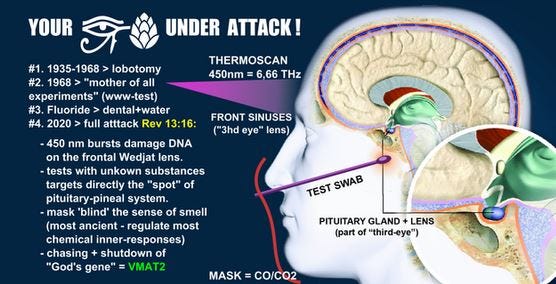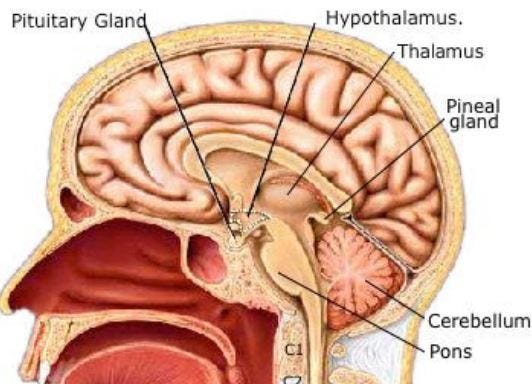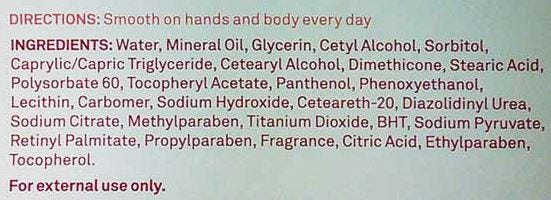Your Nose knows
and it's been right in the middle of your face this whole time.
The humble nose, although it protrudes from the center of each face, is quite underestimated and often ignored. From face value, the nose helps you with balance, regulating breathing/ mental state, humidifies and cleans the air you breathe and regulates body temperature. Spiritually, it is known as a “bridge” that houses life force, intuition and knowledge. It symbolizes personal power.
The inhalation through the nose is extremely important to our health and well-being; this is how we take in life force, or prana. Interestingly, many Egyptian statues have broken noses. This is because ancient Egyptians believed that statues had life force, and the best way to disable that life force is to break off the nose.
As plain as the nose on your face
As we sniff, the tiny inhaled molecules get dissolved in the mucous of the cribriform plate, the thin bone at the top of our noses which is perforated with tiny holes to allow receptors and nerves to carry the scent to the olfactory cortex for interpretation. The olfactory cortex lies in the center of our brain and has strong neural connections with the amygdala. Together the amygdala, hippocampus, hypothalamus and olfactory cortex form the limbic system - the system involved in processing emotions and memories.
Sniff your way to a longer lifespan
Your sense of smell is the only sense that has a direct connection to the brain and humans can detect millions if not billions of distinct smells.
How well you can smell could be a sign of overall brain health. A 2014 study published in the journal Plos One found that Americans aged 57 to 85 unable to identify scents like rose, orange, and peppermint were more than three times as likely to die in the next five years. A diminished sense of smell was also linked to Alzheimer’s and other cognitive impairments in a 2022 study published in the Journal of Alzheimer’s Disease.
If you ever have felt stuffed up, then you know that a stuffy nose really effects your behavior and clarity of thinking for the worse. Difficulty concentrating, sleep problems, lack of energy and depression are just a few of the symptoms of blocked nostrils. Without our sense of smell, we can’t taste anything very much, our sensuous experience of life becomes dull and our immunity decreased.
Luckily, the cranial nerve #1 (the olfactory nerve) regenerates, and so even a chronically diminished or lost sense of smell can be reversed.
Scent connection with emotions and state of mind
Neil Slade discusses the impact of certain smells on the amygdala, the emotional part of our brain in control of our fear response. One of his exercises in his Frontal Lobes Supercharge program involves sniffing things that smell really bad such as garbage and noticing how you feel afterwards, then repeating the same exercise with something great smelling such as flowers or cookies. The point is, we respond very emotionally to what we take in through our nose. A lovely scent triggers our amygdala to “click” us into the frontal lobes- the part of our brain associated with creativity, imagination, unity consciousness and spirituality. A bad odor will result in the amygdala clicking back into the reptile brain, causing a fight or flight response, and creating feelings of disgust, anger and irritation. Nothing more irritating than standing next to a stinky person.
The Nose in social dynamics
We actually use our sense of smell to glean information about our environment almost as much as cats and dogs do, we just don’t realize we are doing it! A 2015 Israeli study revealed that people subconsciously sniff their hands after shaking someones hand for the first time. The sniffing was done covertly in the form of touching or rubbing the nose after a handshake, or laughing and covering the mouth. Through the persons scent, we can pick up on valuable information about their health, genetic compatibility and emotional states.
Our nose is crucial to our ability to be aware of our surroundings. We can actually smell danger, fear and death. By the smell of a person’s sweat we can sense if they are fearful, nervous or disgusted. A mother can recognize her newborn baby’s clothing, as opposed to another woman’s baby based on the scent. Baby’s become calm and relaxed when exposed to the scent of their own mother’s breast milk, as opposed to another woman’s or formula.
Touching, rubbing or scratching your nose during a conversation can mean can also that you are uncertain, nervous or uncomfortable with the situation. This is due to the many blood vessels in the nose dilating and producing an itchy feeling. Sometimes, your nose will itch out of the blue, this may be an intuitive good luck sign. Look out if someone around you has flared nostrils, this can mean that they are angry and ready to fight.
Our noses- under attack
The entire nasal canal in highly vascularised and allows quick access for drugs to be delivered directly to the bloodstream without any liver or digestive interference - as in the case of orally administered drugs.
Larger molecule drugs that cannot be absorbed directly through the mucous membrane of the nasal cavity, can diffuse directly into the central nervous system (CNS) through the nose by the olfactory nerve and trigeminal nerve. This is accomplished by drug application to the highly innervated cribriform plate at the very top, innermost region of the nasal cavity (labeled “olfactory region” in the image below). The cribriform plate is the region of the nose responsible for our sense of smell. It is one of the most fragile bones in the body - only about 5mm thick - and contains thousands of nerve fibers which constantly receive information from the outside world as we breathe, our brain translates the information as smell.
The blood-brain barrier (BBB) is a dandy feature that protects our brains from substances that could cross from our bloodstream directly into our brains and potentially be toxic to the brain. (There are many foods/drugs that weaken the BBB, but that is another topic). However, the cribriform plate inside the nose offers a shortcut that could allow substances such as medications or perhaps nanoparticles to pass through the BBB, directly from the outside world into our brains.

With the above mentioned, the violating of the sensitive nasal canal with a six inch probe would make more sense in the case of some type of drug delivery or brain access rather than “virus” testing.
In her interesting blog, Lilith Adamah discusses zero point energy and how we can all create it within our bodies through the merging of the pineal gland, pituitary gland, and carotid body. These structures perceive magnetic, gravitational and electric energy respectively and can join forces to unlock our spiritual potential and unity consciousness. She points out that the “testing” probe interrupts the triangular formation between these three structures.
Whether they interrupt zero-point energy for sure I don’t know, but either way these probes have caused significant physical damage to some people. In 2020, a 41 year old woman suffered a cerebral spinal fluid leak and meningitis a few months after being subjected to the probe. Other slightly less severe reports include nasal scabbing, bleeding, headaches, congestion, feelings of being violated, etc.
Researchers such as Prof. Antonietta Gatti examined various PCR test rods under the microscope, analyzed their ingredients and found that they contain a variety of (nano) particles made of silver, aluminum, titanium, glass fibers etc, which are not listed in the package leaflet. These corrosive materials cause wounds and inflammation to the sensitive mucous membrane, making it desensitized and dull - wrecking the immune system and shortening the lifespan.
Catch a whiff of this
Our noses have already been attacked for years before 2020 thanks to the fragrance industry pumping out all kinds of cancer causing chemical smells into household cleaners, personal care products, clothing, furniture, vehicles, etc.
The issue of “popcorn lung” has been circulating since the early 2000’s when workers at a microwave popcorn factory in Missouri mysteriously fell ill with a severely debilitating lung inflammation. The illness was caused by the inhalation of Diacetyl, the chemical responsible for the delicious buttery flavor of popcorn.
The manufacturer of Diacetyl and one of the worlds leaders in flavor & fragrance, Givaudan, was well aware of the harms of Diacetyl since the 1980’s yet they refused to take it out of products and failed to educate workers about their exposure risk! Due to popular demand, Diacetyl has been phased out of popcorn since the mid 2000’s. However, it is still used in vapes. The death of 28 year old Kyle Boyd from Orlando in 2019 was linked to this chemical from vaping. Seventeen year old Daniel Lament from Ontario spent 47 days on life support and underwent a double lung transplant after vaping for only 5 months. And there are more examples.
We don’t have to vape to be exposed to chemicals - we are exposed to hundreds or thousands of “fragrances” everyday whether we like it or not. It’s in furniture, clothing, everyday household cleaning products, skincare, and many more.
Givaudan is one of the top suppliers of the fragrance & flavors infused into our everyday products, used to manipulate us to get emotionally attached to certain brands and products.
When we look at the label all we see is “fragrance” and so we think that is just one ingredient and the assumption is “whatever that is, surely it’s been tested and proven safe”. But unfortunately fragrance is a code word for hundreds of various chemicals concocted together and even when you call the manufacturer, no one will tell you the ingredients or the list of chemicals used. It’s top secret proprietary formulas.
As reveled in the 2015 documentary Stink!, even when a high school student Brandon Silk of Pennsylvania had a severe life threatening allergy to Unilever’s Axe body spray - preventing him from being able to attend school and other normal activities - Unilever still refused to disclose the fragrance ingredients to the family.
Also in the documentary, when brand new girls clothing from Justice was sent to a lab, the analysis revealed a carcinogenic flame retardant chemical banned in the 1970’s as well as several cancer causing pthalates. These are the ingredients that create that signature “brand new scent”.
Why do I think these smells are put in almost all products, clothing, furniture, etc?
1. To make us sick and have cancer.
2. Emotional manipulation/ marketing strategies
3. To desensitize our noses and make us dull
Your nose is your friend
If you are the type of person that is sensitive to fragrances, there is a good reason why. Over 90% of synthetic “musk” fragrances are known carcinogens and have been banned in Japan since the 1980’s, yet are still used in the US. Our noses get ravaged by the fragrances, and we lose our sensitivity - hence the reason why you need to apply more and more perfume over time because you don’t smell it anymore.
Breathe through your nose
Making a conscious effort to breathe through your nose at all times, even during workouts, can optimize blood oxygen levels and enhance cognition. Nose only breathing as you sleep also has profound benefits for oral health, eliminates snoring and risk of sleep apnea. If nose breathing doesn’t feel that comfortable yet don’t worry, the more you practice the easier it will get.
One of the easiest ways to achieve higher states of consciousness is to simply breathe slowly in through the nose and out the mouth- a practice taught in many yoga/meditation classes.
There are many breathing exercises to play with but one of my personal favorites is Ujjayi breathing. The word ujjayi means victorious, and it represents the “highest victory” of controlling your own mind. It involves breathing very slowly in/out through the nose while slightly contracting the back of the throat to create a loud ocean-like sound. When practiced correctly, this style of breathing allows over 50% more oxygen into the body, as compared to normal breathing. It also strengthens the vocal cords and can help improve thyroid health as well.

To conclude, I would like to share one of my favorite affirmations, written by Louise Hay as part of her “Love Your Body” affirmation track.
“I love my nose. I am at peace with everyone around me, no person, place or thing has any power over me.
I am the power and authority in my world. I choose the thoughts that recognize my own true worth. I recognize my own intuitive ability.
I trust my intuition, for I am always in contact with universal wisdom and truth. I always go in the right direction for me. I love and appreciate my beautiful nose.”
Thank you for reading.
~ Julia
Resources
https://www.livescience.com/65071-why-egyptian-statues-have-broken-noses.html
https://journals.plos.org/plosone/article?id=10.1371/journal.pone.0107541
https://curiousdesire.com/reasons-why-nose-is-important/
https://www.thoughtco.com/olfactory-system-4066176
https://robert-gorter.info/patent-review-nanotechnology-based-nose-brain-drug-delivery/
https://www.nia.nih.gov/news/loss-smell-linked-alzheimers-cognitive-impairment-and-biomarkers
https://casetext.com/case/aregood-v-givaudan-flavors-corp-4
http://purenaturaldiva.com/2013/03/axe-body-spray-allergic-reaction/






